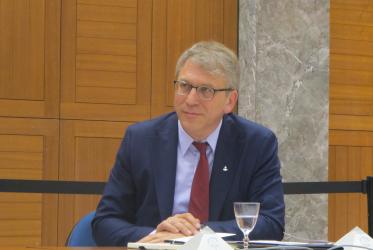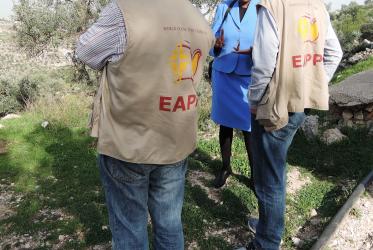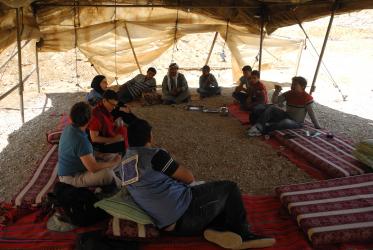Displaying 501 - 520 of 603
A presence to accompany vulnerable communities
31 March 2015
WCC condemns attacks on churches in Niger
22 January 2015
Momentum builds for ban on nuclear weapons
16 December 2014
Israeli attacks have worsened water systems in Gaza
08 August 2014
Sign early and save lives!
04 June 2013







